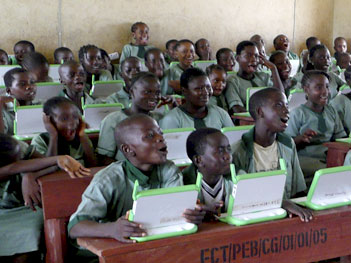Combating fraud in the welfare stateMonday, September 24, 2007
Adrian Carr at SPSS looks to the private sector for inspiration.
Benefits fraud cost the UK taxpayer £2.6 billion last year and calls to cut this figure back and improve efficiency have never been stronger. Reported holes in the system, the 'one size fits all' approach to service and the automation of request processing are all combining to enable fraudulent claims to slip through the net.
By the very nature of its work, the public sector collects vast amounts of data and information, and the Department for Work and Pensions is no different. This puts it in a strong position to identify fraudulent or inaccurate claims.
However, the downside is that there's a real danger of data deluge leading to information overload. And, if you can't be completely sure whether or not the data is accurate, you're starting out from a weak position. Low confidence in the quality of information means it's barely worth having it in the first place.
Accurate data is the first step to raising user confidence in the insight on file. Once systems and processes are in place to check and verify information, confidence rises and organisations can then analyse data and use the resulting information in their fight against fraud.
To begin the journey towards a reformed welfare state we should be looking to the private sector for inspiration. Plenty of parallels can be drawn with the global insurance and financial sectors for example. Both of these have the same valid aspirations to improve customer service and efficiency and reduce fraud, albeit to the benefit of shareholders rather than tax payers.
A whole host of solutions have been tried and tested in these sectors to achieve these goals, and I've seen various approaches succeed. For instance, an increasing number of companies are using data mining technology to draw on insights from previous customer behaviour to tackle these issues. By trawling through existing data, the technology can be used to identify models and profiles of those who are most likely to make fraudulent claims.
However, while analysis of past behaviour is a good indicator of future activity, there is a need to continue to monitor behaviour as it changes over time. By deploying these proven models in a real-time environment, such as a call centre, they can begin providing agents with caller insight that will help identify potentially fraudulent applications. This approach is known as Predictive Analytics.
As many as 20 of the top 25 global banks are using Predictive Analytics to detect and prevent fraudulent activity and money laundering, as well as to achieve higher standards of customer service. Large international insurance companies such as Corona Direct – Belgium's second-largest direct insurance company, and Natexis Assurances, the insurance division of French bank group Group Banque Populaire – have been using the technology for some time.
Alpha Credit Belgium, a subsidiary of Fortis Bank, is a good example of how Predictive Analytics has been used in the consumer credit business to help assess loan applications on an individual basis. By undertaking data analysis, through planning, data collection, access and management, the bank was able to create continually-updated customer credit profiles.
Having established these, the bank was able to analyse a customer's credit risk on a case-by-case basis, by guiding call centre operators through the initial call, and determining which requests could be fast-tracked and which should be further investigated. Alpha Credit reported that it was then able to accept as many as 90 per cent of loan applications on the spot, by having trusted data on hand that identified customers as 'low risk'. With up-to-date profiles in place, there was also less need for human intervention. The same techniques could easily be applied to the benefits system, and it is easy to see where they could lead to greater efficiency, such as being able to speed up those claims that are genuine by establishing them right from the call centre stage.
Another financial services example is Lloyds TSB which recognised the need for a proactive fraud prevention measure. The company estimated that as many as one in six insurance claims were fraudulent. By using analysis of real-time customer behaviour, within a matter of days a number of models and profiles of fraudulent activity were created to help the bank immediately recognise abnormalities, and Lloyds TSB made an estimated annual saving of £2.5 million.
Applications such as this have enabled private sector companies to better identify potentially fraudulent claims early, leading to a dramatic improvement in insurance claims handling. Along with a reduction in fraud it's prompted an improvement in customer service as legitimate claimants are easily fast-tracked and directly compensated.
We're all aware of the limited resources that the public sector has access to, so it's really important that they are used to their full potential. The expensive fraud investigation resources should be focused where they are needed, instead of being spread too thinly.
By using data to fast-track bona fide claims as early as the initial call and make helpful suggestions about related issues to claimants, many of the processes can be automated. This enables call centre workers to handle a greater volume of calls, or frees up their time to investigate potentially fraudulent claims. I believe that the sharing of information, and making the most of existing public data to act quickly and clamp down on fraudsters, is the easiest step the welfare state can take to achieving efficiency in benefits delivery.
http://www.publicservice.co.uk/feature_story.asp?id=8215This article seems to use the neo-liberal rhetoric that the private sector can provide the answers to benefit fraud. I personally don't see how there can be such direct comparisons between online-banking which is a service in which banks are free to decline customers and benefit claiming which is a fundamental right of citizenship. A benefit's agency cannot turn down a claimant simply because they may fit a pattern can they?
As discussed last week maybe some form of benefits/Id card is the only way to combat online applications for benefits. Or maybe benefits simply should not be available online???
I do however agree with his point that maybe the sharing of information when it comes to benefits would help speed up applications and reduce fraud. This would however be incredibly hard considering the large numbers of agencies and departments that deal with the different benefits, maybe it's time for a centralised body to co-ordinate the system? Not only would this lead to greater efficiencies and a reduction in fraud (hopefully) it would be a lot easier for claimants to fill out one form to claim for all their benefits at once.





